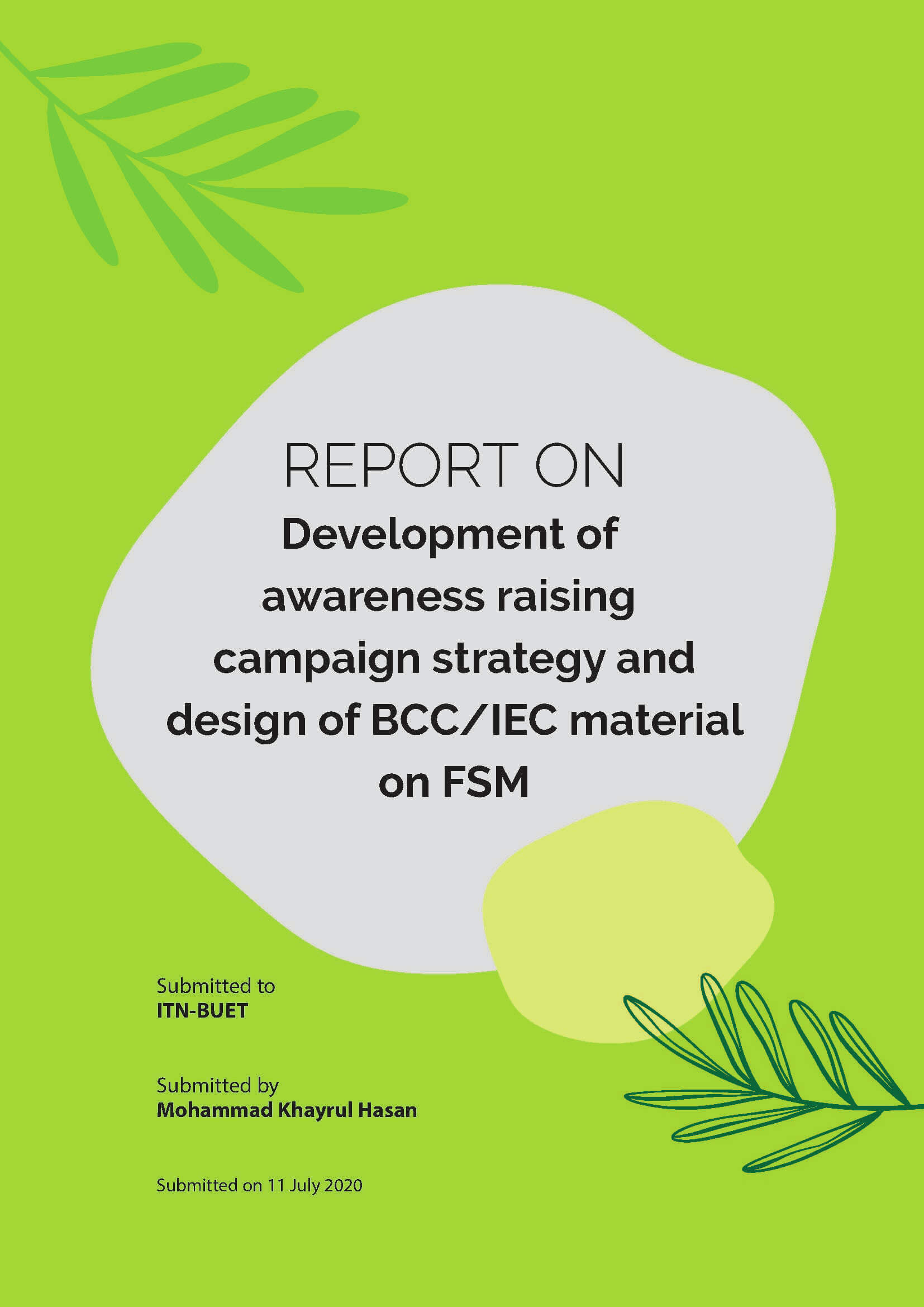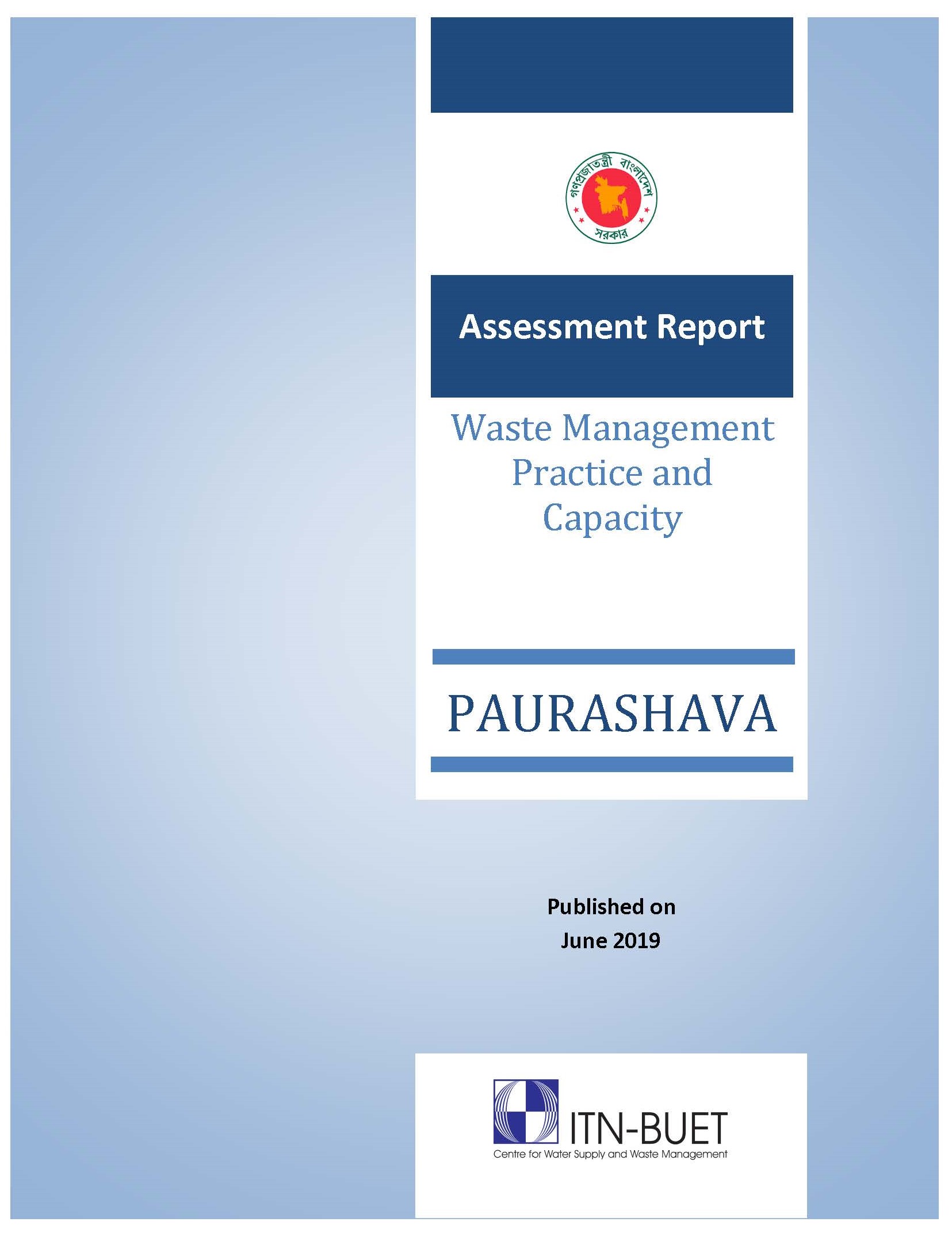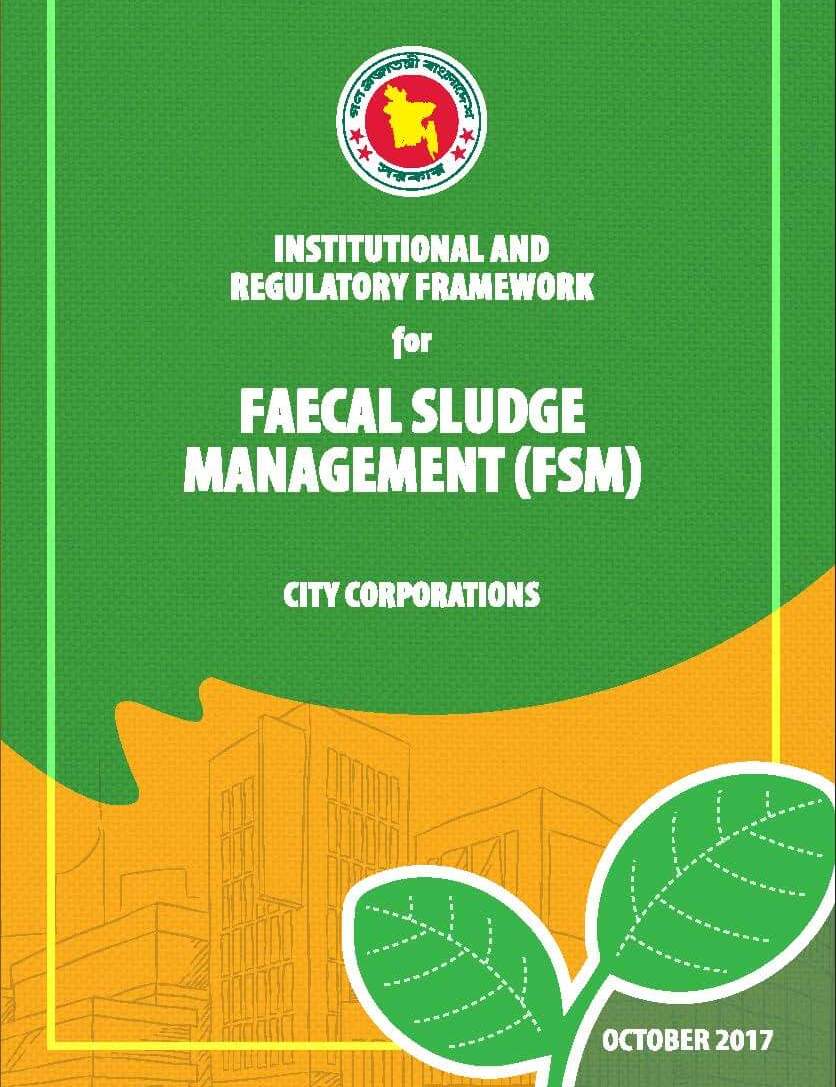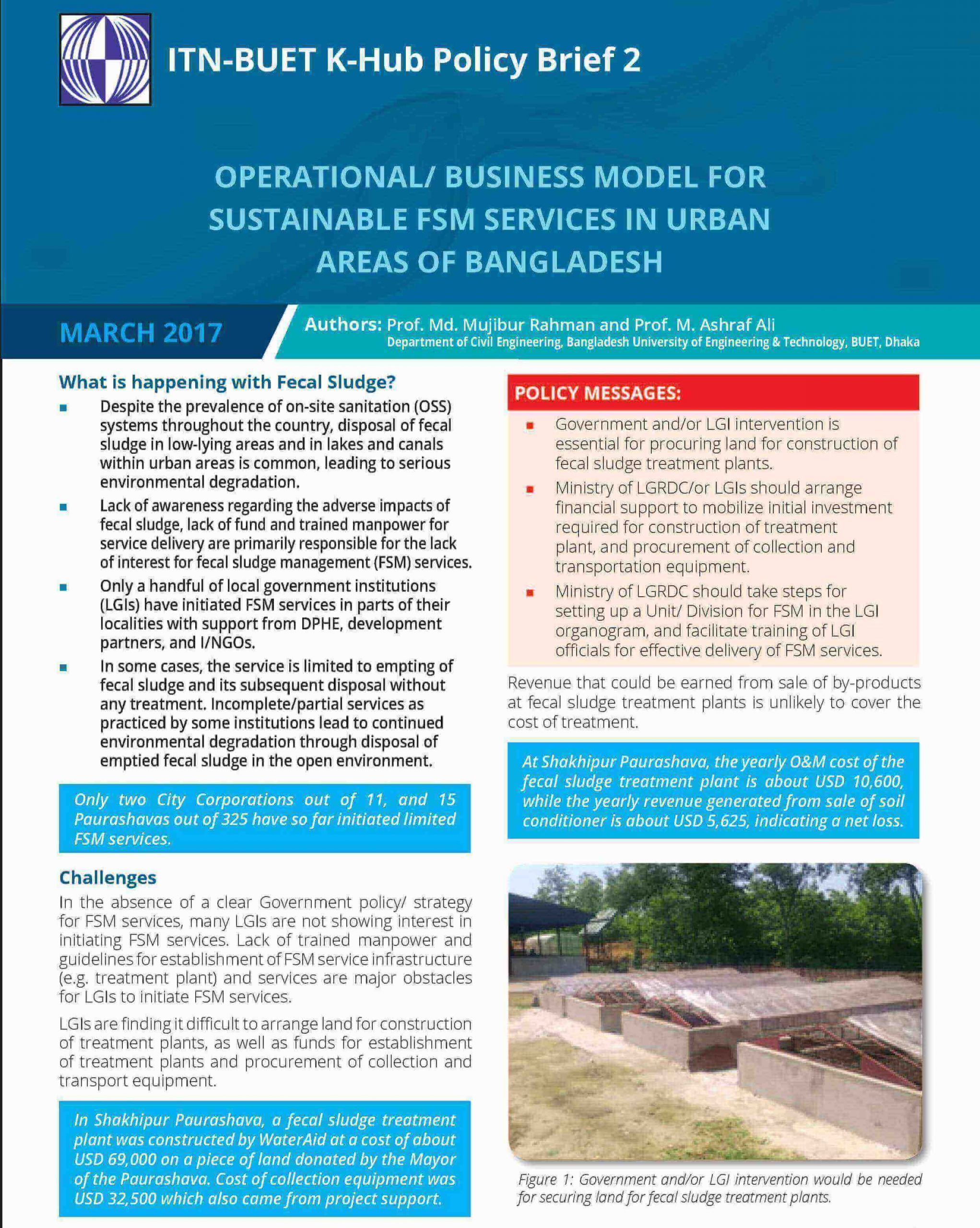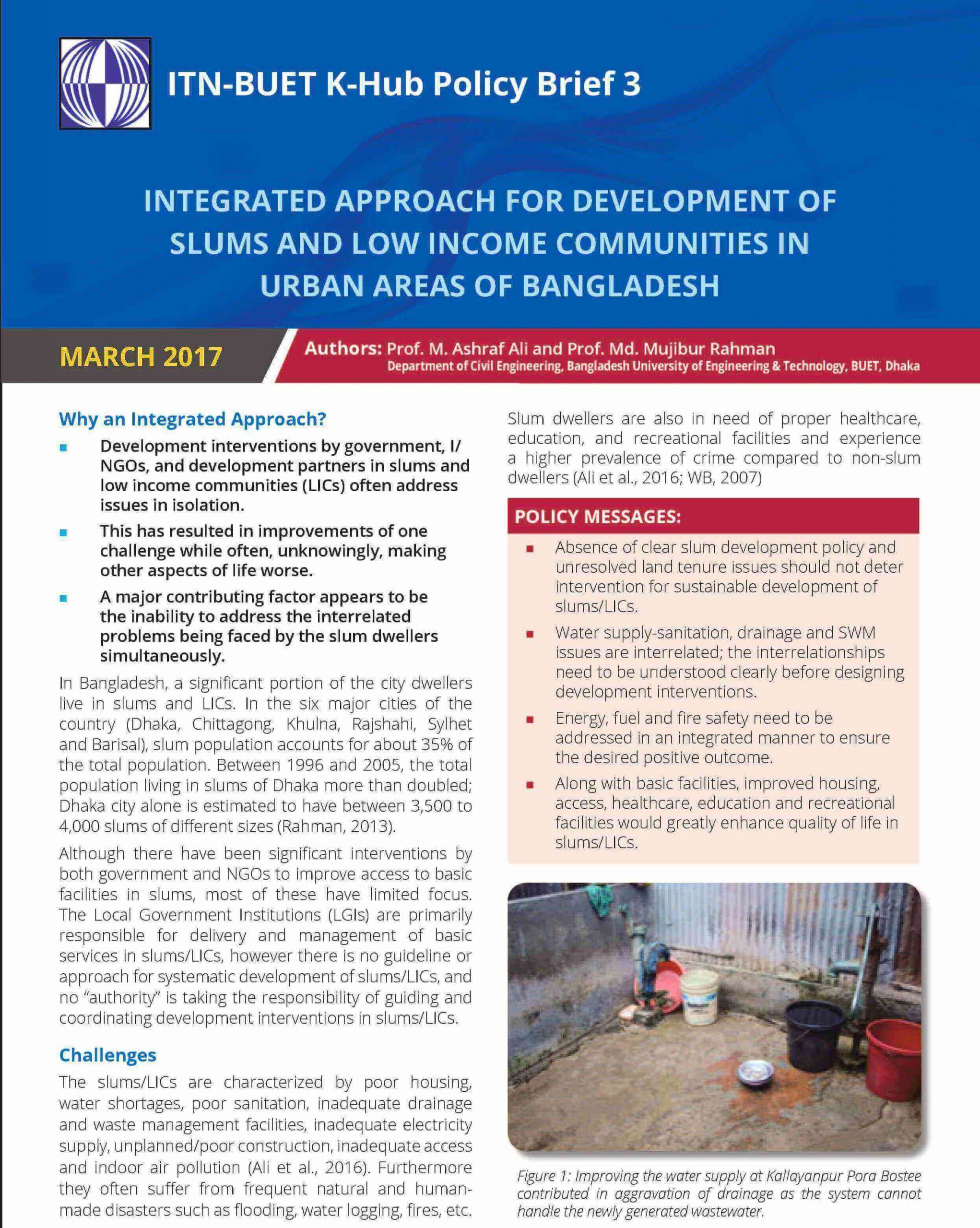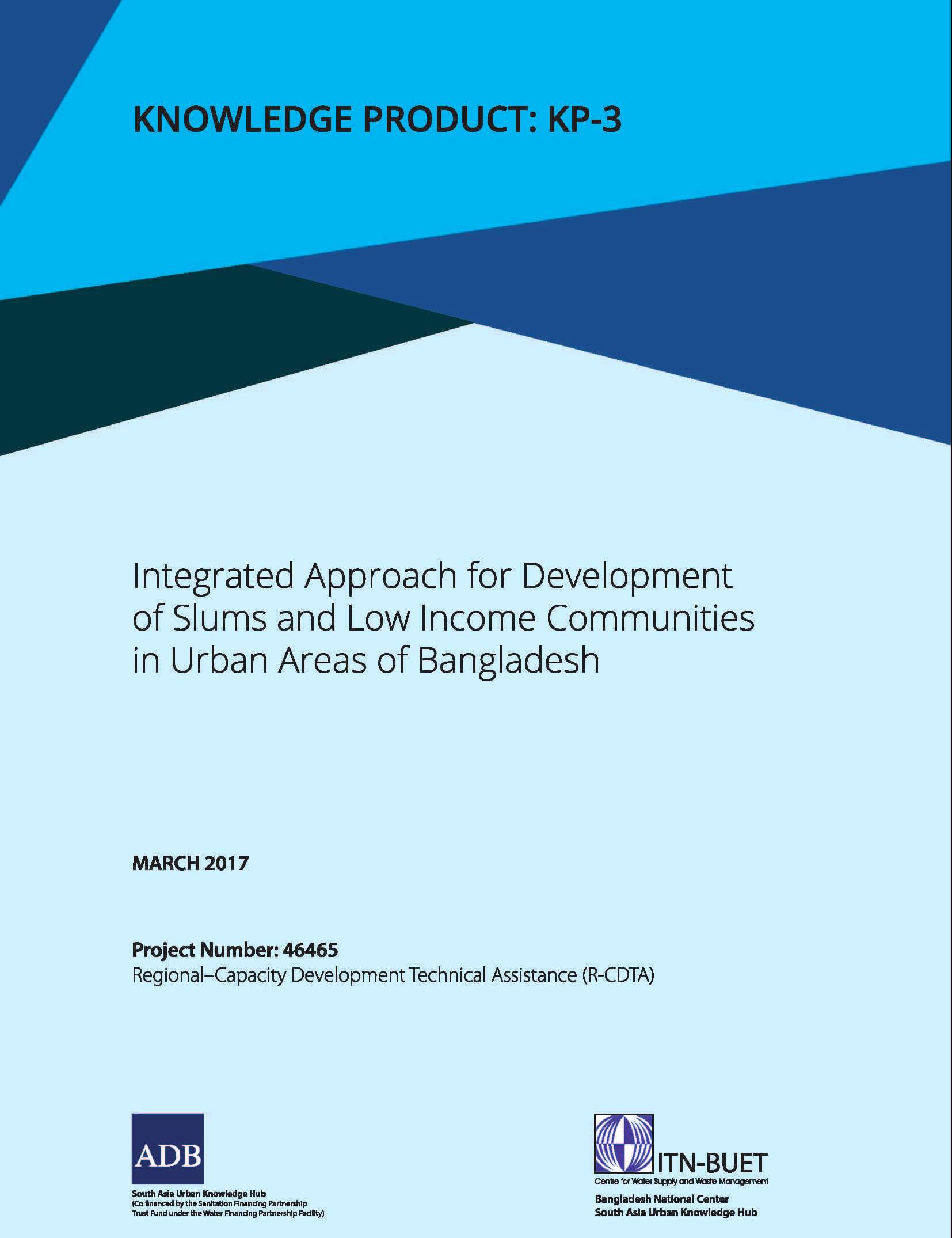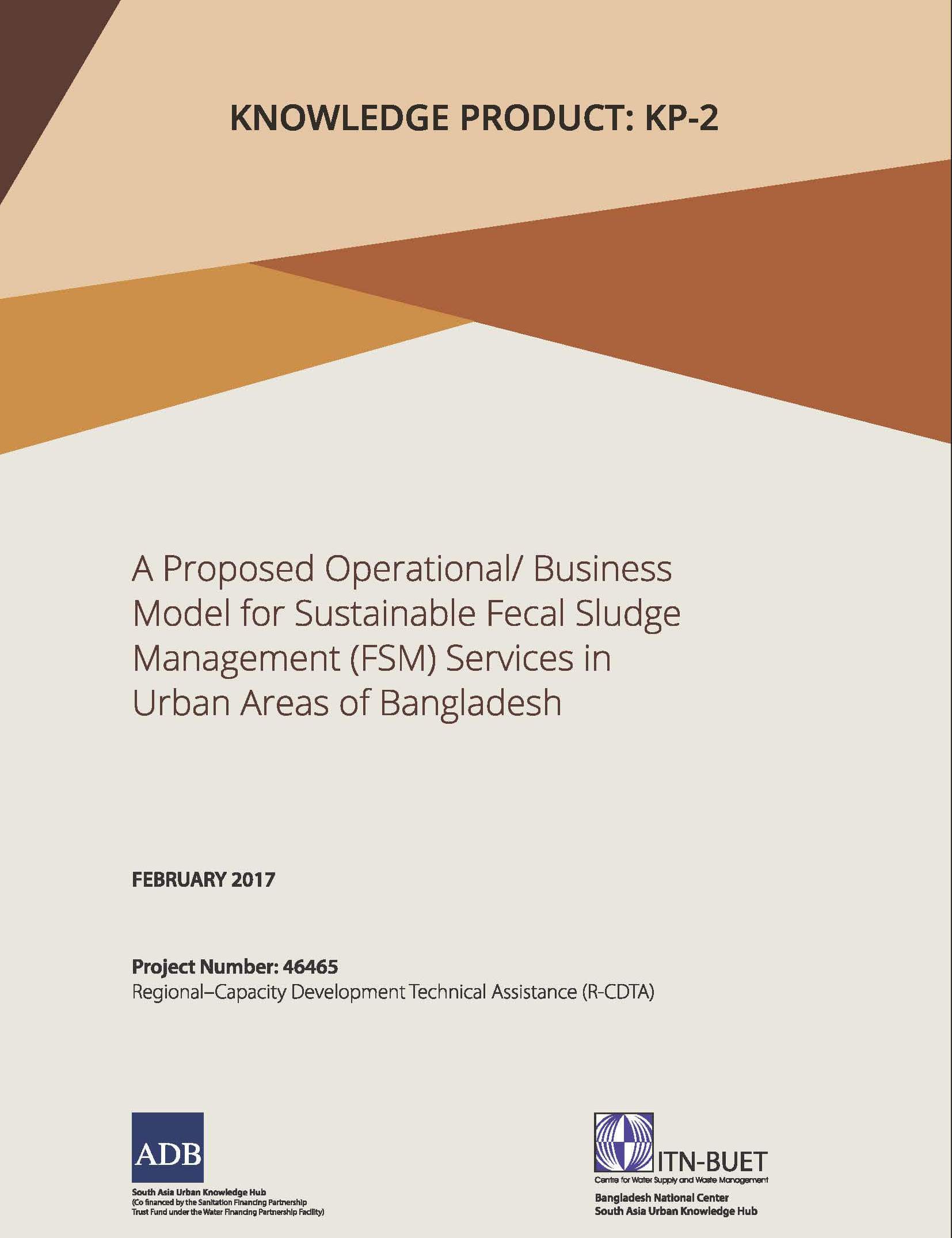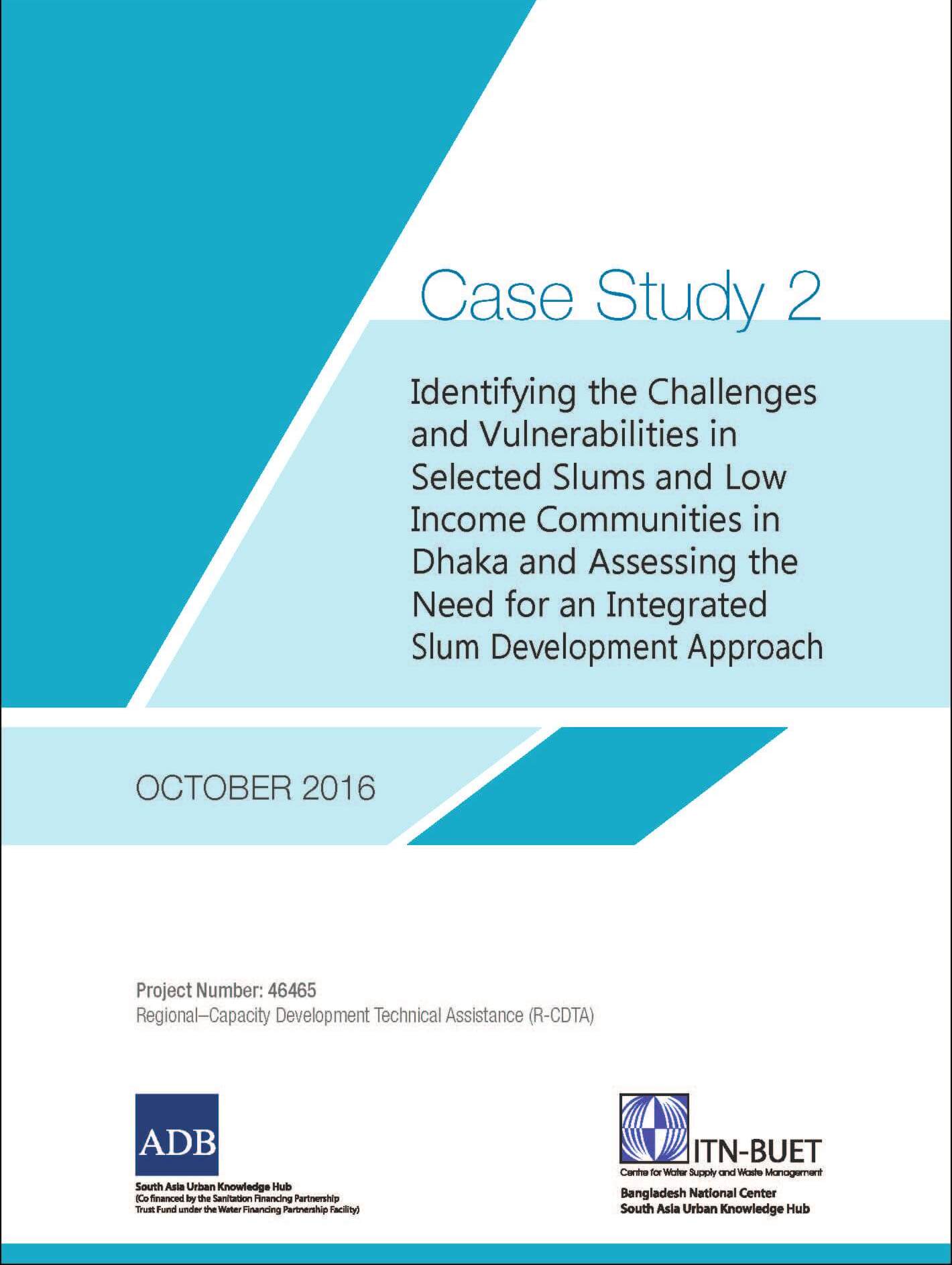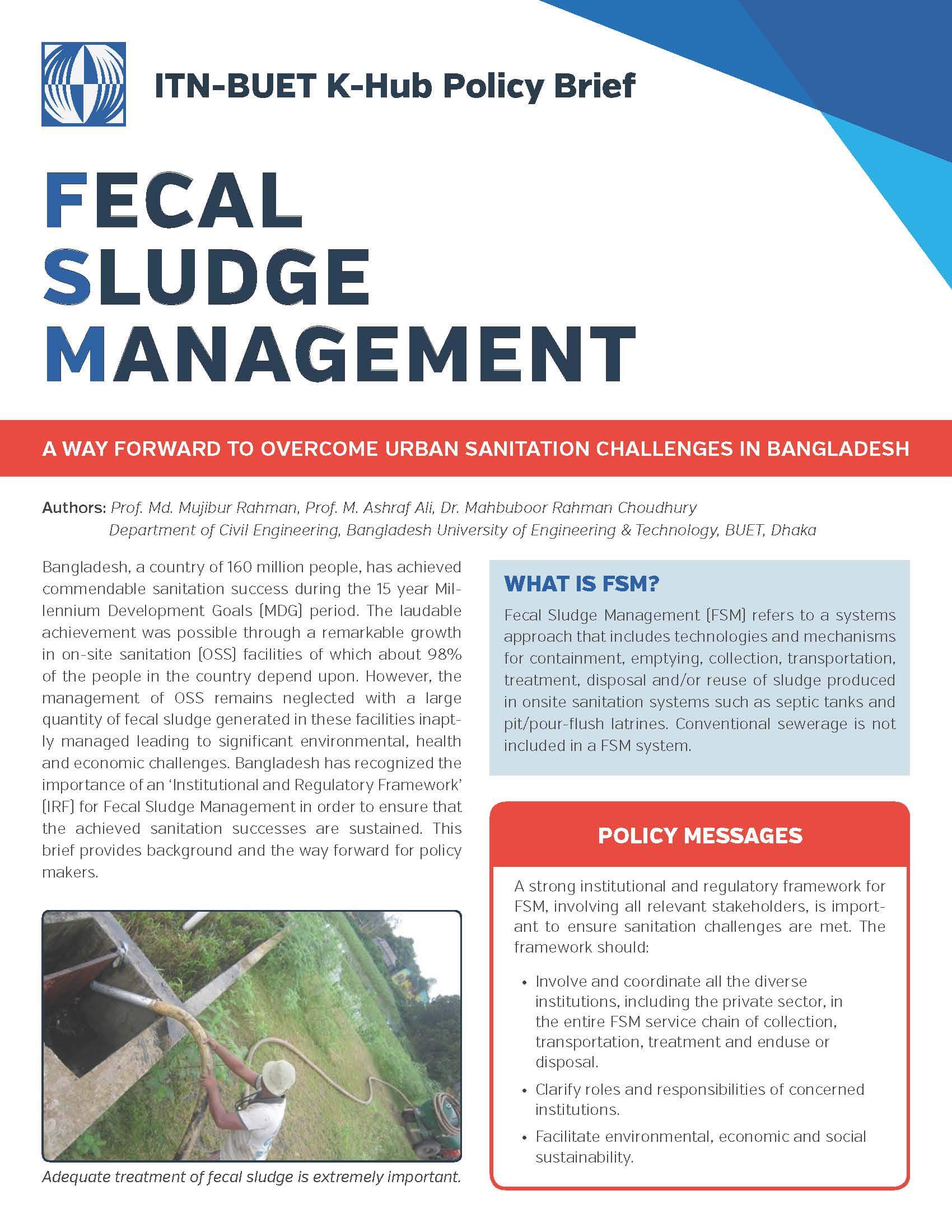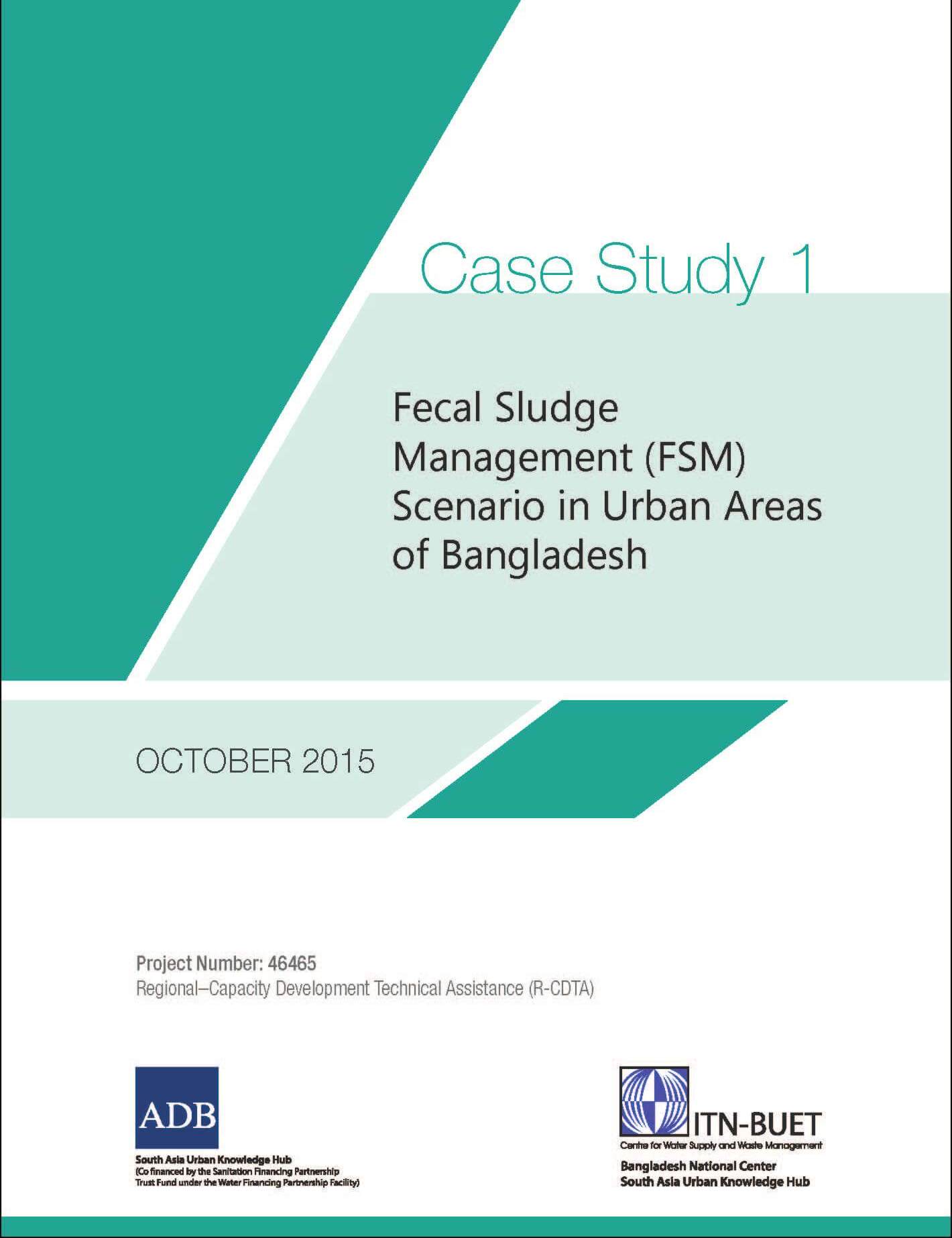ITN-BUET
Report on awareness raising campaign strategy and design of BCC-IEC Material on FSM
ITN-BUET, a center for water supply and waste management of the Bangladesh University of Engineering and Technology has published a term of reference aiming to appoint consultant/s to prepare an awareness-raising campaign …
Publisher(s): ITN-BUET
2020
Assessment Report: Waste Management Practice and Capacity – Paurashava
The report presents the current sanitation, solid waste and faecal waste management conditions of the Paurashavas.
Publisher(s): ITN-BUET
2019
Institutional and Regulatory Framework for Faecal Sludge Management (FSM): City Corporations
The Institutional and Regulatory Framework has been developed with the central notion of ensuring safe sanitation practice in our country, aligned with Global Goal 6.2. The IRF-FSM has been developed separately for city corporations, municipalities, rural areas, and the mega-city of Dhaka – laying out the institutional roles and responsibilities to implement FSM services in these different contexts.
2017
Policy Brief: Operational/ business model for sustainable fsm services in urban areas of Bangladesh
This Policy Brief presents an operational guideline for establishing effective FSM services in urban areas of Bangladesh. The model has been developed based on a detailed assessment of the existing operation of FSM services in different urban centres of Bangladesh, a review of data/information and experiences of running FSM services in other countries, and through extensive consultation involving all stakeholders.
Publisher(s): ITN-BUET
2017
Policy Brief: Integrated Approach for Development of Slums and Low-Income Communities in Urban Areas of Bangladesh
This policy brief presents the foundations for an integrated multi-stakeholder approach to improve the facilities and services in slums and LICs. The “integrated approach” involves identifying and addressing the key “interrelated challenges” simultaneously and in a systematic manner.
Publisher(s): ITN-BUET
2017
Knowledge Product: Integrated Approach for Development of Slums and Low Income Communities in Urban Areas of Bangladesh
An “integrated approach” (Knowledge Product – 3) has been proposed for holistic development of slums and low-income communities (LICs). The approach has been developed based on assessment of existing situation and challenges in slums and LICs, review of slum development approaches/experiences in different countries, and through extensive consultation involving all stakeholders. The “approach” involves identification of issues and challenges in urban slums and LICs under “four broad categories”, and then addressing the “interrelated issues and challenges” under each category systematically in an “integrated manner” involving all stakeholders including the LGI itself, I/NGOs, development partners, and other concerned agencies.
Publisher(s): ITN-BUET
2017
Knowledge Product : A proposed operational/business model for sustainable Fecal Sludge Management (FSM) services in urban areas of Bangladesh
This document, referred to as Knowledge Product, KP-2, presents a guideline for establishing an effective FSM operational/ business model in urban areas of Bangladesh. The model has been developed based on a detailed assessment of existing operations of FSM services in different urban centres of Bangladesh, a review of data/information and experience of running FSM services in other countries, and through extensive consultations involving all stakeholders.
Publisher(s): ITN-BUET
2017
Policy Brief on Fecal Sludge Management
Bangladesh has recognized the importance of an Institutional and Regulatory Framework (IRF) for Fecal Sludge Management in order to ensure that the achieved sanitation successes are sustained. This brief provides background and the way forward for policymakers.
Publisher(s): ITN-BUET
2016
Case Study: Fecal Sludge Management (FSM) Scenario in Urban Areas of Bangladesh
Although the problems associated with FSM is widespread, there is limited data and information on FSM practices in urban areas. There are significant differences in institutional setup and FSM practices among and within cities/towns, and proper understanding of the situation is a pre-requisite for the development of a workable FSM system. The overall objective of the present case study was to assess the FSM scenario in different urban settings.
2015


